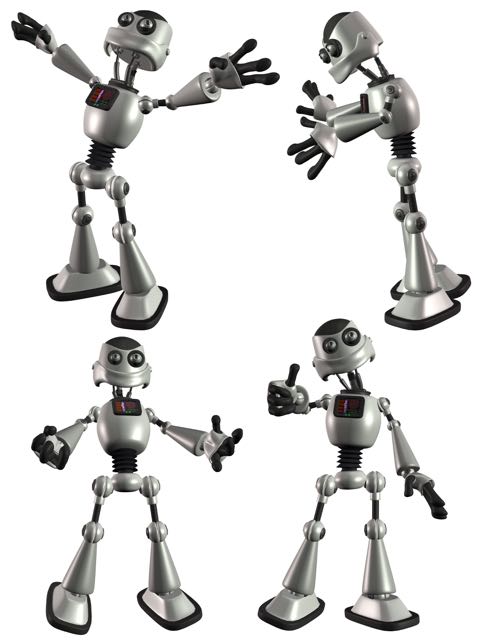A magazine where the digital world meets the real world.
On the web
- Home
- Browse by date
- Browse by topic
- Enter the maze
- Follow our blog
- Follow us on Twitter
- Resources for teachers
- Subscribe
In print
What is cs4fn?
- About us
- Contact us
- Partners
- Privacy and cookies
- Copyright and contributions
- Links to other fun sites
- Complete our questionnaire, give us feedback
Search:
Standup Robots
by Jane Waite, Queen Mary University of London

'How do robots eat pizza?'... 'One byte at a time'. Computational Humor is real, but it's not jokes about computers, it's computers telling their own jokes.
We have seen computers that create art, stories, slogans and even magic tricks. But we haven't had computers performing themselves. Can robots invent their own jokes? Can they tell jokes?
Combining Artificial Intelligence, computational linguistics and humor studies (yes you can study how to be funny!) a team of Scottish researchers made an early attempt at computerized standup comedy! They came up with Standup (System to Augment Non Speakers Dialogue Using Puns): a program that generates riddles for kids with language difficulties. Standup has a dictionary and joke-building mechanism, but does not perform, it just creates the jokes. You will have to judge for yourself as to whether the puns are funny. You can download the software from here. What makes a pun funny? It is a about the word having two meanings at exactly the same time in a sentence. It is also about generating an expectation that you then break: a key idea about what is at the core of creativity too.
A research team at Virgina Tech in the US created a system that started to learn about funny pictures. Having defined a 'funniness score' they created a computational model for humorous scenes, and trained it to predict funniness, perhaps with an eye to spotting pics for social media posting, or not.
But are there funny robots out there? Yes! RoboThespian programmed by researchers at Queen Mary University of London, and Data, created by researchers at Carnegie Mellon University are both robots programmed to do stand-up comedy. Data has a bank of jokes and responds to audience reaction. His developers don't actually know what he will do when he performs, as he is learning all the time. At his first public gig, he got the crowd laughing, but his timing was poor. You can see his performance online, in a TED Talk.
RoboThespian did a gig at the London Barbican alongside human comedians. The performance was a live experiment to understand whether the robot could 'work the audience' as well as a human comedian. They found that even relatively small changes in the timing of delivery make a big difference to audience response.
What have these all got in common? Artificial Intelligence, machine learning and studies to understand what humour actually is, are being combined to make something that is funny. Comedy is perhaps the pinnacle of creativity. It's certainly not easy for a human to write even one joke, so think how hard it is distill that skill into algorithms and train a computer to create loads of them. You have to laugh!


